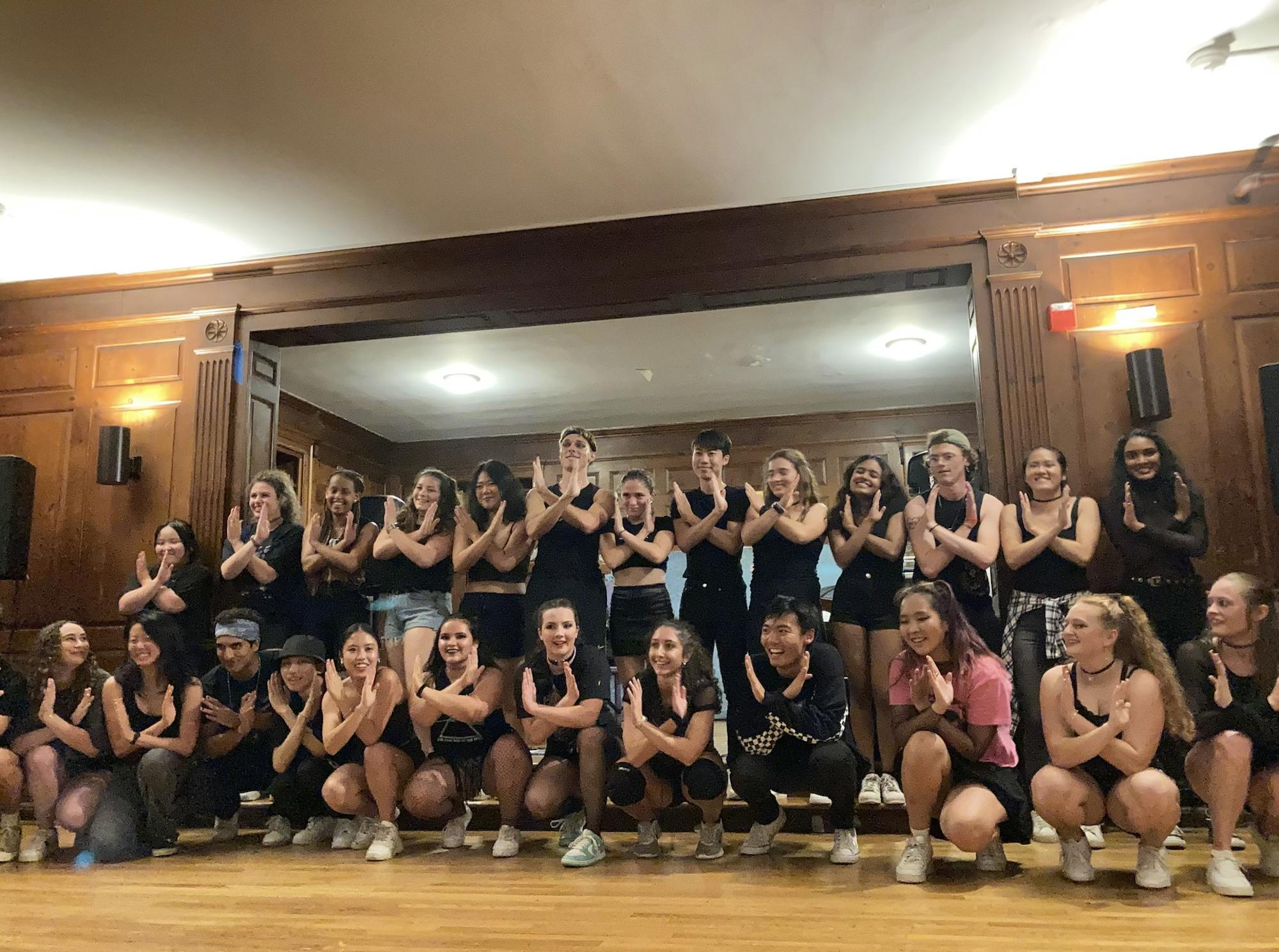Every year during sophomore summer, a variety of performing arts groups on campus — from a capella to dance to improvisation — open up spots for temporary members. With generally more free time and an eagerness to take advantage of all the College has to offer, sophomores usually take this opportunity to challenge themselves to acquire a new set of skills or return to an activity they stopped upon coming to Dartmouth. Though the pandemic paused this summer tradition last year, with fewer COVID-19 restrictions on campus now, students are revitalizing it and enjoying the College’s gradual transition into normalcy.
Both a capella and dance performance groups held auditions the first week of summer term, with the exception of Street Soul –– an open dance group on campus.
Business manager of the Dartmouth Subtleties and Cordialities summer president Julia Herman ’23 noted that the motivation behind this process was to create a laid-back performance experience.
“We wanted people to experience what a capella is like without necessarily feeling pressure about the performances,” Herman said. “Anyone who auditioned for us and didn’t have a placement otherwise is in our group, s, we have about 35 members and it increases every week because people want to join. It’s really just about having fun.”
Like Herman, Bryanna Entwistle ’23, a member of the Sugarplum dance group, shared similar sentiments about the laid-back attitude of the summer audition process. Entwistle, who has been a dancer for twelve years, was named director of Sugarplum’s Summer Group, Splenda. She said that they auditioned over a hundred people along with Sheba and Ujima this term.
“The great thing about summer groups is that they’re usually pretty casual,” Entwistle said. “We just wanted to take as many people as we could and give them the opportunity to dance in the summer. We ended up taking 40 dancers, and we have ten existing Sugarplum members on campus.”
Having faced several challenges during the pandemic, performance groups are now taking advantage of the fewer COVID-19 guidelines and open rehearsal spaces on campus.
Entwistle said that the group was unable to train in its studio during the spring and had to divide Sugarplum into two groups to comply with occupancy restrictions. Now that the College has rescinded the mask mandate for those who are vaccinated, performance groups are back together in the studio.
“We have rehearsals twice a week for Splenda,” Entwistle said. “And then we have an additional rehearsal for the old Sugarplum members to work on some more technical dances.”
Isabelle Vratimos ’23, a member of the Dartmouth Dodecaphonics, also expressed her excitement about returning to in-person practices and performances after being virtual for an entire year. She added that singing is not only a creative expression, but a cathartic experience. She hopes that by being part of the Summerphonix, she will be able to share this artistic outlet with a larger group of students.
“Singing is something that was really challenging to do virtually,” Vratimos said. “We sent in [videos of] ourselves singing parts of certain songs and then people in the group volunteered to put it all together and make it sound clean with video editing. I am really looking forward to singing with everyone in person again because there’s just nothing like hearing it come together in person.”
Roman Olavarria ’23, who is involved in several dance groups on campus, said that continuing his involvement in Shebalite and Street Soul during the summer is a great way to meet new people and experience a broader range of dance styles.
“I view dancing as a healing experience,” Olavarria said. “It’s definitely a way to not only get in touch with yourself, but also around others. It’s a way to get yourself out of your head, which can sometimes be a challenge, especially in times like these.”
With the freedom that the summer term has to offer, a capella and dance groups on campus are venturing out of their comfort zones and experimenting with different musical styles and choreographies.
Herman emphasized that participating in a coed a cappella group for the first time has opened an array of artistic possibilities. She added that combining the Cords and Subtleties — groups that are not normally coed — has allowed members to learn different group arrangements and incorporate a wider variety of songs into their performances.
In addition to teaching new members the usual musical arrangements, Vratimos said that the Summerphonix are also incorporating new elements into their performances.
“We are experimenting with some little interludes in our show,” Vratimos said. “Someone is doing a slam poem for this show. Someone else is doing like a fun little song that they know in the middle.”
Most performances will take place at the end of the term and will include crossovers between dance and a capella groups. In addition, all the summer dance groups are hosting a joint annual event taking place in both the spring and summer terms called Saussy on Aug. 19.
While COVID-19 brought several changes, Olavarria said she believes that it had some positive effects.
“Saussy is the big performance that usually happens indoors,” Olavarria said. “However, last spring, we decided to hold Saussy outside at the Kemeny courtyard. We thought it was a lot better than the original location and we’re doing that again this term.”
Vratimos highlighted the uniqueness of this sophomore summer tradition and said that she hopes other students feel encouraged to be part of these performance groups or show support for other Dartmouth students by attending the upcoming events.
“I think it’s important to remember how special it is to be creative and bond with your classmates,” Vratimos said. “Getting to share that with people in such an open and welcoming space is something that’s really special and unique to our school, and I hope that people cherish that going forward because of the time that we lost in person.”




